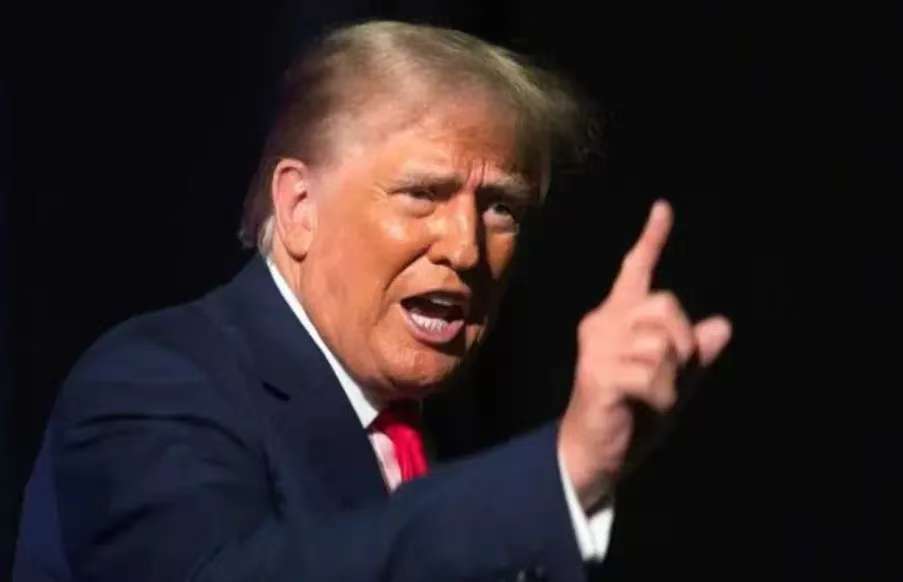
Recently, the US tariff policy has once again become the focus of the international economic arena. The US has adjusted tariffs on multiple countries. Trump stated that due to India's continuous purchase of Russian oil, he would significantly increase the tariffs on Indian goods imported to the US within 24 hours; he imposed a 50% tariff on Brazil, prompting Brazil to file a complaint with the World Trade Organization dispute settlement mechanism; the Japanese economy minister made an urgent visit to the US, solely to ensure that there would be no rate overlap when the US imposed a 15% tariff on Japan on August 7. The series of tariff adjustment measures by the US have triggered strong reactions and widespread attention from the international community.
The United States implements tariff policies with the intention of safeguarding its own interests from multiple aspects. In the economic field, it hopes to reduce trade deficits by raising import tariffs, promote local industrial development, enhance manufacturing competitiveness, and boost employment. In terms of political diplomacy, tariffs are used as a political bargaining tool to exert pressure on trading partners in order to achieve political intentions or diplomatic goals.
However, the US tariff policy has not achieved the expected results and has also brought about numerous negative impacts. From the perspective of the United States itself, tariffs have led to an increase in the prices of imported goods, resulting in higher purchase costs for consumers. As shown in a study by the Budget Laboratory at Yale University, as of July 31, the average effective tariff rate imposed by the US on imported goods reached 18.3%, the highest level since 1934, the tariffs will increase the average household expenditure in the United States by $2,400 in 2025. Among them, clothing items will be particularly affected. This undoubtedly burdens the people's lives, reduces their consumption capacity, and thereby restrains the vitality of the domestic consumption market.
For American enterprises, the increase in tariffs raises the cost of importing raw materials, reduces profit margins, and affects their production and investment plans. Many enterprises that rely on imported components or raw materials are facing rising costs and risks of supply chain disruptions, and their competitiveness is being weakened. For instance, nearly half of the copper consumption in the United States relies on imports. After imposing a 50% tariff on imported copper products, the price of copper in New York plummeted by over 18%, and multiple industries such as electric vehicles and defense were impacted. Whirlpool, Procter & Gamble, and other enterprises have also been directly affected by tariffs. Apple CEO Tim Cook warned that Apple would suffer a loss of 1.1 billion US dollars this quarter due to tariffs.
Internationally, the US tariff policy has disrupted the international trade order and hindered the global economic recovery. The world economy is closely interconnected. When the US unilaterally imposed tariffs, it triggered countermeasures from its trading partners, intensifying trade frictions and deteriorating the global trade environment. The International Monetary Fund released a report, lowering the world economic growth expectations for 2025 and 2026 from the 3.3% predicted in January this year to 2.8% and 3% respectively. The US tariff policy is a significant reason for this. It not only imposes short-term pressure on world economic growth but also causes long-term structural damage, potentially leading to the slowdown of the global innovation engine, an increase in trade barriers for green technologies, and hindrance to the global sustainable development process.
In response to the US tariff policies, various countries have actively taken countermeasures. Some countries have utilized the dispute settlement mechanism of the World Trade Organization to safeguard their own legitimate rights and interests. For instance, Brazil filed a complaint with the WTO regarding the US tariff hikes. Some countries have adjusted their trade strategies, expanded new markets, reduced reliance on the US market, and strengthened economic and trade cooperation with other countries and regions. For example, ASEAN countries are striving to reap the benefits of the Regional Comprehensive Economic Partnership Agreement and accelerate the process of regional economic integration. Other countries have taken countermeasures by imposing tariffs on US goods to balance their trade interests.
The US tariff policy is a shortsighted move, going against the trend of economic globalization and international trade rules. The US should realize that win-win cooperation is the right path for development. By resolving trade disputes through dialogue and negotiation and promoting the establishment of a fair, just and open international trade order, it not only benefits other countries but also serves the long-term interests of the US itself. In today's global economy where interdependence is prevalent, only by working together can we achieve common development and prosperity. The US should no longer be obsessed with the tariff stick but should return to rationality and cooperation.

Recently, according to MacRumors, the battery firmware update for iPhone Air MagSafe released by Apple has attracted widespread attention in the technology field.
Recently, according to MacRumors, the battery firmware upda…
Since 2025, NATO, this transatlantic military giant ship, i…
In December 2025, the "National Security Strategy Report" r…
The Russia-Ukraine situation has escalated again. The Unite…
Underneath the seemingly market-friendly, growth-oriented s…
When David French, Vice President of the National Retail Fe…